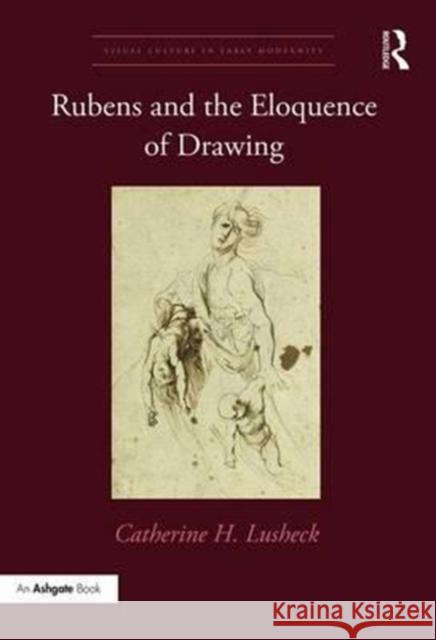Rubens and the Eloquence of Drawing » książka
Rubens and the Eloquence of Drawing
ISBN-13: 9781472477125 / Angielski / Twarda / 2017 / 312 str.
Rubens and the Eloquence of Drawing
ISBN-13: 9781472477125 / Angielski / Twarda / 2017 / 312 str.
(netto: 718,58 VAT: 5%)
Najniższa cena z 30 dni: 654,86
ok. 16-18 dni roboczych.
Darmowa dostawa!
Rubens & the Eloquence of Drawing examines the formative graphic practice of the preeminent Flemish painter Peter Paul Rubens (1577-1640) within the context of early modern concepts of eloquence, especially in the early 17th-century literary and philosophical circles of Justus Lipsius (1547-1606). Taking Rubens s drawings seriously as erudite models of emulation and disegno in the Italian Renaissance tradition, the book reconsiders Rubens s drawings during his Roman period and just after he returned home to Antwerp, c. 1600-1620, in light of early modern, northern commitments to Senecan eclecticism, style, and the meaningful joining of form to content, especially as expressed by Lipsius in his pedagogical treatise on the art of letter writing, the Epistolica Institutio, and Rubens s own treatise on the Imitation of Antique Statuary. Taking a case study approach to individual drawings, the book highlights why Rubens's drawings should be reconsidered as highly rhetorical, visual manifestations of a unique cultural moment in the years leading up to the Thirty Years' War (1618-1648) when the health of art and society were drawn seriously into question in Neostoic circles. Arguably influenced by Lipsius's commitments to the works of Seneca and Tacitus, and his interest in creating a mature, muscular art by marrying style to time-honored content in the personal epistolary sphere, the book explores how Rubens similarly sought to demonstrate the eloquence and substance of his art at its very foundations in the medium then most associated with the closest ideas of the artist, and the quality and force of his inimitable intellect. "











